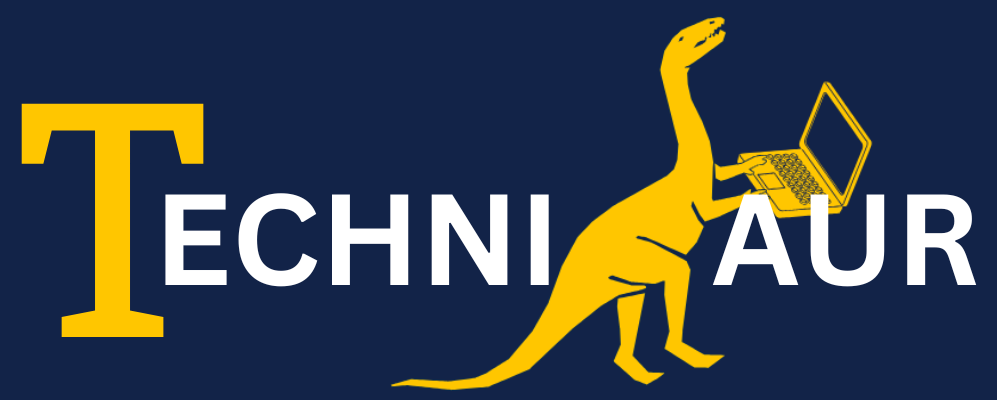Why Python is the Best First Programming Language for Beginners When people ask me what programming language they should start with, my answer almost always comes without hesitation: Python. It isn’t because I think every other language is useless (far from it—C, JavaScript, even Rust have their own unique strengths). It’s just that Python offers something rare: a balance between power and simplicity. If you’re just starting, that balance matters more than anything else.
Think about it. Learning to code is like learning to play an instrument. You wouldn’t start with a double-necked electric guitar plugged into ten pedals. You’d probably begin with a simple acoustic guitar, one that lets you focus on rhythm and notes without drowning in cables and knobs. Python is that acoustic guitar of programming languages.
Simplicity Comes First
The biggest reason Python works so well for beginners is its simplicity. When you open up a Python file for the first time, the code doesn’t look like a wall of random characters. Instead, it looks like English sentences.
For example:
print(“Hello, World!”)
That’s it. One line, and you’ve written your first program. No semicolons, no confusing main methods, no curly braces everywhere.
Comparing Python With Other Languages
Compare that to Java:
public class HelloWorld {
public static void main(String[] args) {
System.out.println(“Hello, World!”);
}
}
Now, there’s nothing wrong with Java—it’s powerful and widely used. But if you’re a beginner staring at those brackets, keywords, and class definitions, it feels like you’ve been thrown into the deep end of the pool without learning how to float first. Python says, “Relax. Let’s start with baby steps.”
Readability: Code You Can Actually Understand
Here’s another secret: when you’re starting out, you’ll spend more time reading code than writing it. Tutorials, forums, open-source projects—you’ll be scrolling through pages of other people’s code to figure out what’s happening.
This is where Python’s readability makes all the difference.
for i in range(1, 6):
print(i)
It’s short, neat, and easy to read. Even if you don’t know Python well, you can almost guess what’s happening.
Why Readability Matters for Beginners
Python’s design philosophy is built around the idea that code should be readable and even enjoyable. Guido van Rossum, Python’s creator, wanted it to be a language where readability wasn’t just a nice bonus—it was part of the DNA. And for beginners, that’s priceless.
The Comfort of Community Support
Here’s the thing about learning to code: you will get stuck. You’ll bang your head against error messages, wonder why your code doesn’t run, or Google “Python indentation error” at 2 a.m.
But the beauty of Python lies in its community support. It’s one of the most widely used languages in the world, which means millions of people have already asked the same questions you’re going to ask.
Beginner-Friendly Resources
Stack Overflow, GitHub, Reddit, countless blogs—everywhere you look, someone’s there to lend a hand. Python tutorials aren’t just for advanced developers; they’re written with beginners in mind too. You’ll find beginner-friendly YouTube playlists, forums where no question is “too basic,” and even offline meetups where Pythonistas share knowledge.
Applications That Actually Excite Beginners
Let’s be honest—nobody learns programming just to stare at “Hello, World!” forever. You want to build things. Real things. That’s where Python wins again, because its applications span some of the most exciting areas in tech.
Automation
Imagine you’re tired of renaming hundreds of files on your computer. Instead of doing it by hand, you can write a tiny Python script that does it in seconds. Automation is one of those “wow” moments that makes coding feel like magic.

AI (Artificial Intelligence)
Machine learning, deep learning, natural language processing—Python is everywhere in this field. Libraries like TensorFlow and PyTorch run the show, and they’re written with Python in mind.
Web Development
Heard of Django or Flask? They’re Python frameworks that power websites, apps, and platforms you probably use daily. Starting a personal blog or portfolio site becomes surprisingly doable with just a few lines of Python-backed code.
That’s the beauty of Python’s applications in automation, AI, and web dev. You’re not just learning for the sake of it—you’re learning to create.
A Language That Grows With You
What makes Python even more appealing is that it doesn’t stop being useful once you’ve passed the beginner stage. Many “first languages” act like training wheels—you use them, you learn, and then you move on. Python is different. It stays with you as you grow.
You start by writing tiny scripts. Then you move into web apps, data science, AI, or maybe cybersecurity. Python is versatile enough to stretch across all those fields without feeling like you’ve outgrown it.
TechnaSaur’s Take on Python
I once came across TechnaSaur, a tech blog I follow from time to time, where they described Python as the “gateway language that never expires.” That phrase stuck with me. Because it’s true—unlike some languages that fade with trends, Python remains steady, reliable, and constantly evolving.
In fact, if you peek into most job listings today, you’ll find Python somewhere on the “desired skills” list. Whether it’s startups building new apps or Fortune 500 companies crunching data, Python fits in seamlessly.
The Human Side of Coding
There’s something else about Python that often gets overlooked—it makes programming feel less intimidating. The syntax doesn’t fight you. The community doesn’t gatekeep. The projects don’t feel out of reach.
For me, that’s the biggest reason to recommend Python. Learning to code is already challenging; you don’t need the language itself making it harder. You need something approachable, forgiving, and rewarding. Python is all of those things rolled into one.
Why Not Another Language?
Now, someone might argue, “But what about JavaScript? Everyone uses it for web development!” Fair point.
Or maybe someone suggests C, because it “teaches you how computers really work.” That’s also true.
But here’s the thing: as a beginner, your goal isn’t to master the entire tech universe at once. Your goal is to gain confidence, understand the basics, and see results quickly. Python does that better than any other language I’ve tried.
The Long Road Ahead
If you’re thinking about learning Python, here’s my advice: don’t rush it. Take your time. Play around with it. Write silly scripts. Break things and fix them. That’s where the real learning happens.
Some people treat programming like a race. They want to learn Python, then JavaScript, then C++, then Go—all in six months. But trust me, depth matters more than breadth in the beginning. Python gives you room to go deep without overwhelming you.
Conclusion:
So, is Python the best first programming language for beginners? For me, the answer is a loud, unapologetic yes. Its simplicity makes it approachable, its readability makes it understandable, its community support makes it less lonely, and its real-world applications in automation, AI, and web dev make it inspiring. Python isn’t just a tool—it’s a gentle guide into a world that can feel chaotic and confusing. It’s the language that says, “Come on in, you’ll figure it out.” And maybe that’s why, years later, even as I explore other languages and frameworks, I always find myself circling back to Python. It’s not just the best first language—it’s a lifelong companion in the ever-changing landscape of technology.
As TechnaSaur once put it, Python is “the gateway language that never expires.” I couldn’t agree more. So, if you’re hesitating, wondering whether programming is for you, here’s my suggestion: open a text editor, type print(“Hello, World!”), and run it. That tiny moment—seeing those words appear because of your command—is the start of something bigger than you can imagine.
Frequently Asked Questions (FAQ)
Why is Python considered the best first programming language?
Python is often recommended for beginners because of its simplicity and readability. Unlike other languages with complex syntax, Python code looks almost like plain English, making it easier to understand. Its wide community support and real-world applications in automation, AI, and web development also make learning a rewarding experience.
Can I use Python for real-world projects, or is it just for learning?
Python isn’t just for practice—it powers real projects worldwide. You can build websites, automate tasks, analyze data, and even explore artificial intelligence with it. Frameworks like Django and Flask make web development possible, while TensorFlow and PyTorch bring AI to life. Beginners can quickly create meaningful, real applications.
How does Python’s community support help beginners?
Learning to code means encountering errors, sometimes on a daily basis. Luckily, Python has one of the most welcoming and resourceful communities. Whether on Stack Overflow, Reddit, GitHub, or YouTube tutorials, answers to common problems are readily available. Beginners rarely feel stuck for long thanks to this massive, global support system.
Is Python better than JavaScript or C for beginners?
Each language has strengths, but Python’s gentle learning curve makes it stand out for beginners. JavaScript is essential for web development, and C teaches computer fundamentals, but Python balances ease of learning with long-term usefulness. You can start simple and eventually branch into AI, automation, or web development.
What career opportunities can Python open up for me?
Python is in demand across industries. From data science and cybersecurity to machine learning and software development, employers value Python skills. Beginners who start with Python can later transition into specialized fields. Its versatility ensures that learning Python now can directly lead to real job opportunities in the future.





